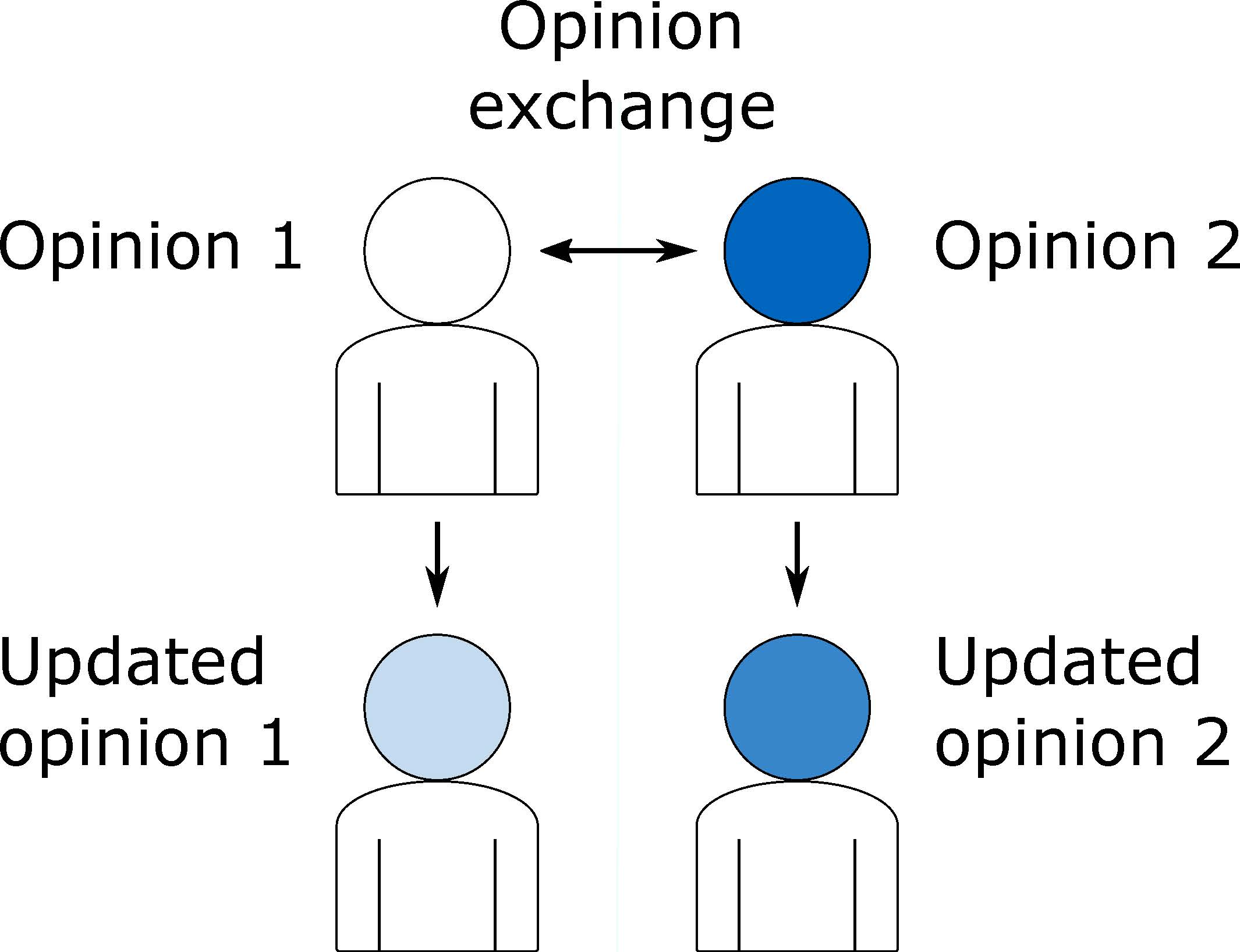In this contribution, we aim to show that opinion dynamics and population balance modeling can benefit from an exchange of problems and methods. To support this claim, the Deffuant-Weisbuch model, a classical approach in opinion dynamics, is formulated as a population balance model. This new formulation is subsequently analyzed in terms of moment equations, and conservation of the first and second order moment is shown. Exemplary results obtained by our formulation are presented and agreement with the original model is found. Also the influence of the initial distribution is studied. Additionally, the Deffuant-Weisbuch model is transferred to engineering and interpreted as mass transfer between liquid droplets which results in a more flexible formulation compared to alternatives from the literature. On the one hand, it is concluded that the transfer of opinion-dynamics problems to the domain of population balance modeling offers some interesting insights as well as stimulating challenges for the population-balance community. On the other hand, it is inferred that population-balance methods can contribute to the solution of problems in opinion dynamics. In a broad outlook, some further possibilities of how the two fields can possibly benefit from a close interaction are outlined.

